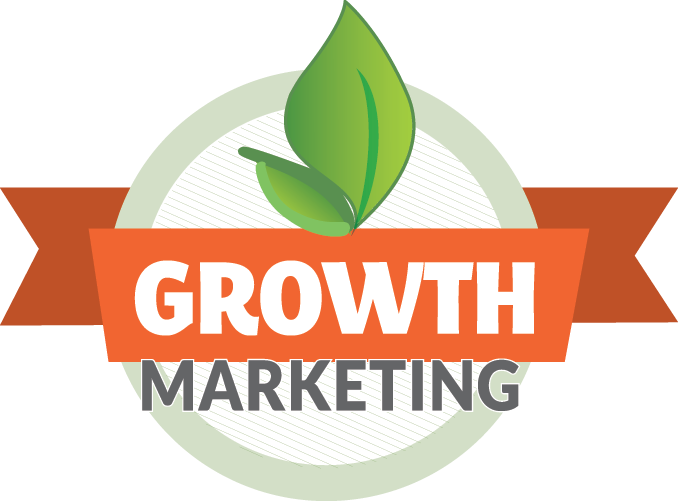What is Digital Marketing and How Does It Work? Comprehensive Guide to Strategies and Benefits

What is Digital Marketing and How Does It Work?
Estimated reading time: 8 minutes
Key Takeaways
-
- Digital marketing is crucial for modern business success in an online environment.
- It encompasses various strategies including content marketing, SEO, and social media marketing.
- Digital marketing allows for enhanced targeting and real-time measurement of campaigns.
- Future trends include AI integration and hyper-personalization.
- Understanding what digital marketing is and how it works is essential to leverage its advantages.
Table of Contents
-
- Understanding Digital Marketing: Definition and Core Principles
- The Shift from Traditional to Digital Marketing
- Core Components of Digital Marketing Strategy
- The Digital Marketing Ecosystem: Channels and Components
- Email Marketing and Automation
- Search Engine Marketing (SEM)
- Content Marketing and SEO
- Strategic Framework: How Digital Marketing Works
- Audience Research and Segmentation
- Content Strategy and Creation
- Campaign Execution and Management
- Performance Measurement and Optimization
- Benefits and Advantages of Digital Marketing
- Future Trends in Digital Marketing
- Conclusion
- Frequently Asked Questions
Digital marketing has reshaped the landscape of business interaction in an ever-evolving digital age. With the global market projected to reach a staggering worth of $786.2 billion by 2026, understanding what digital marketing is and how it works is vital for anyone looking to thrive in today’s competitive marketplace.
From social media to email campaigns, digital marketing encompasses a range of strategies and tools designed to promote products and services through digital channels, effectively connecting businesses with their target audiences everywhere they engage online. This comprehensive blog post will provide a detailed look at digital marketing’s definition, its various channels, strategies, benefits, and key performance indicators that businesses can leverage for success. By the end, you will have a solid understanding of how digital marketing works in an interconnected digital ecosystem.
Understanding Digital Marketing: Definition and Core Principles
At its core, digital marketing involves the promotion of products or services through any digital medium, tapping into the power of the internet and software applications. It includes an array of tactics through platforms such as websites, social media, search engines, and mobile applications, aimed at enhancing brand visibility and customer engagement. Digital marketing encompasses all marketing efforts utilizing these digital channels to reach potential consumers.
The Shift from Traditional to Digital Marketing
The shift from traditional marketing strategies—including print media, television, and radio—to digital marketing has revolutionized how brands communicate with consumers. Traditional marketing predominantly involved one-way communication, broadcasting messages to a wide audience with little opportunity for measurable feedback. In contrast, digital marketing fosters two-way communication where businesses can engage and respond to consumers in real-time, allowing for a more personalized and interactive experience.
Core Components of Digital Marketing Strategy
Digital marketing strategy hinges on a few pivotal components that work cohesively to create a comprehensive marketing plan. Some of these core components include:
-
- Content Marketing: Producing valuable and relevant content (like blog posts, videos, or infographics) to attract and retain an audience, ultimately advancing customer action and building brand authority source.
- Search Engine Optimization (SEO): Enhancing website visibility in organic search results through strategic use of keywords, content improvement, and technical enhancements source.
-
- Social Media Marketing: Engaging users on platforms like Facebook, Instagram, and LinkedIn to build brand communities, share content, and drive traffic to websites source.
Through these components, businesses can craft strategies that resonate with their target customers and meet defined KPIs (Key Performance Indicators).
The Digital Marketing Ecosystem: Channels and Components
Digital marketing is more than just a set of channels; it is an ecosystem where different components work synergistically to create a holistic marketing strategy. Understanding this ecosystem is crucial for businesses aiming to leverage the full potential of digital marketing.
Email Marketing and Automation
Email marketing remains a stalwart tool in digital marketing that provides a direct line of communication to consumers. Through segmentation, businesses can send targeted messages to distinct groups, enhancing relevance and engagement source. Marketing automation tools also allow brands to streamline their communication efforts, automate repetitive tasks, and nurture leads more effectively.
Search Engine Marketing (SEM)
Search engine marketing combines both organic SEO and paid advertising to improve visibility and attract traffic. While SEO focuses on long-term visibility through content creation and website optimization, pay-per-click (PPC) advertising delivers immediate results by placing ads on search engine results pages.
Content Marketing and SEO
A successful digital marketing strategy often relies heavily on both content marketing and SEO. Content should integrate relevant keywords naturally to improve search engine ranking while providing informative and engaging value to readers.
Strategic Framework: How Digital Marketing Works
Understanding how digital marketing works involves comprehending the integrated processes that allow businesses to engage with customers effectively.
Audience Research and Segmentation
Central to digital marketing is knowing your audience. Conducting thorough market research helps businesses create detailed buyer personas. Segmentation involves categorizing customers based on demographics, behaviors, and needs, allowing marketers to tailor their strategies effectively.
Content Strategy and Creation
A robust content strategy includes planning what content to create, when to publish it, and on which platforms to share it. Regular content audits can also help evaluate existing efforts and adjust the strategy based on performance metrics.
Campaign Execution and Management
Executing digital marketing strategies requires coordinated efforts across various channels. Project management methodologies assist in organizing campaign activities, overseeing timelines, and ensuring that the branding message remains consistent across platforms.
Performance Measurement and Optimization
One of the unique aspects of digital marketing is its ability to measure success through analytics tools. Each marketing channel offers specific metrics, such as conversion rates and customer acquisition costs, enabling businesses to assess campaign performance and optimize strategies accordingly.
Benefits and Advantages of Digital Marketing
Digital marketing offers many advantages over traditional marketing methods:
Cost Effectiveness
One of the most significant advantages of digital marketing is its cost efficiency. Types of digital marketing campaigns, like social media ads or email marketing, often require lower budgets compared to traditional methods, making them accessible to small businesses without sacrificing quality.
Enhanced Targeting
Digital marketing allows for precise targeting of key demographics based on behavior, interests, and geography. This accuracy ensures that messages resonate with the intended audiences and increases the chances of conversions source.
Real-Time Measurement
Immediate access to performance data through analytics tools enables businesses to make informed decisions quickly. This real-time feedback allows for rapid adaptations to improve campaign effectiveness and customer engagement.
Improved Customer Relations
Digital platforms enable businesses to engage actively and build relationships with customers. Through channels like social media, companies can respond to inquiries, foster community discussions, and gauge customer sentiment more effectively.
Future Trends in Digital Marketing
The digital marketing landscape is constantly evolving, with significant trends shaping its future:
Artificial Intelligence Integration
AI is becoming integral to digital marketing by enabling predictive algorithms that streamline consumer-oriented strategies. The rise of chatbots for customer service and AI-driven analytics platforms simplifies interactions and enhances the user experience.
Privacy-First Marketing
As privacy regulations evolve, businesses are shifting to ethical marketing practices that prioritize customer consent and data protection. First-party data approaches allow businesses to build trust with consumers while still engaging them effectively.
Hyper-Personalization
As AI advances, hyper-personalization is becoming the norm. Utilizing consumer data to create individualized marketing experiences—down to the specific interests of consumers—can significantly enhance engagement and loyalty.
Conclusion
Digital marketing has transformed into a crucial pillar for success in today’s business landscape. By understanding what digital marketing is and how it works, businesses can harness its power to connect with audiences, measure their effectiveness, and drive growth. From cost effectiveness and enhanced targeting to the future trends of AI and personalization, embracing the strategies within digital marketing will undoubtedly set the stage for lasting success in the digital age.
Overall, as businesses increasingly lean into these digital strategies, the focus remains on creating value, fostering relationships, and optimizing engagement with consumers in innovative ways. The transformation from traditional marketing methods to digital platforms marks a new era—one rich with opportunities for brands willing to adapt and thrive. For businesses seeking expert guidance, partnering with an affordable digital marketing agency can provide the necessary support to navigate this dynamic field effectively.
Frequently Asked Questions
What is digital marketing?
Digital marketing refers to the promotion of products or services using digital channels, such as websites, social media, email, and search engines.
What are the benefits of digital marketing?
Digital marketing offers cost-effectiveness, enhanced targeting, real-time measurement, and improved customer relations compared to traditional marketing methods.
How can businesses measure digital marketing success?
Businesses can utilize analytics tools to track metrics such as conversion rates, customer engagement, and return on investment (ROI) to measure campaign success.


